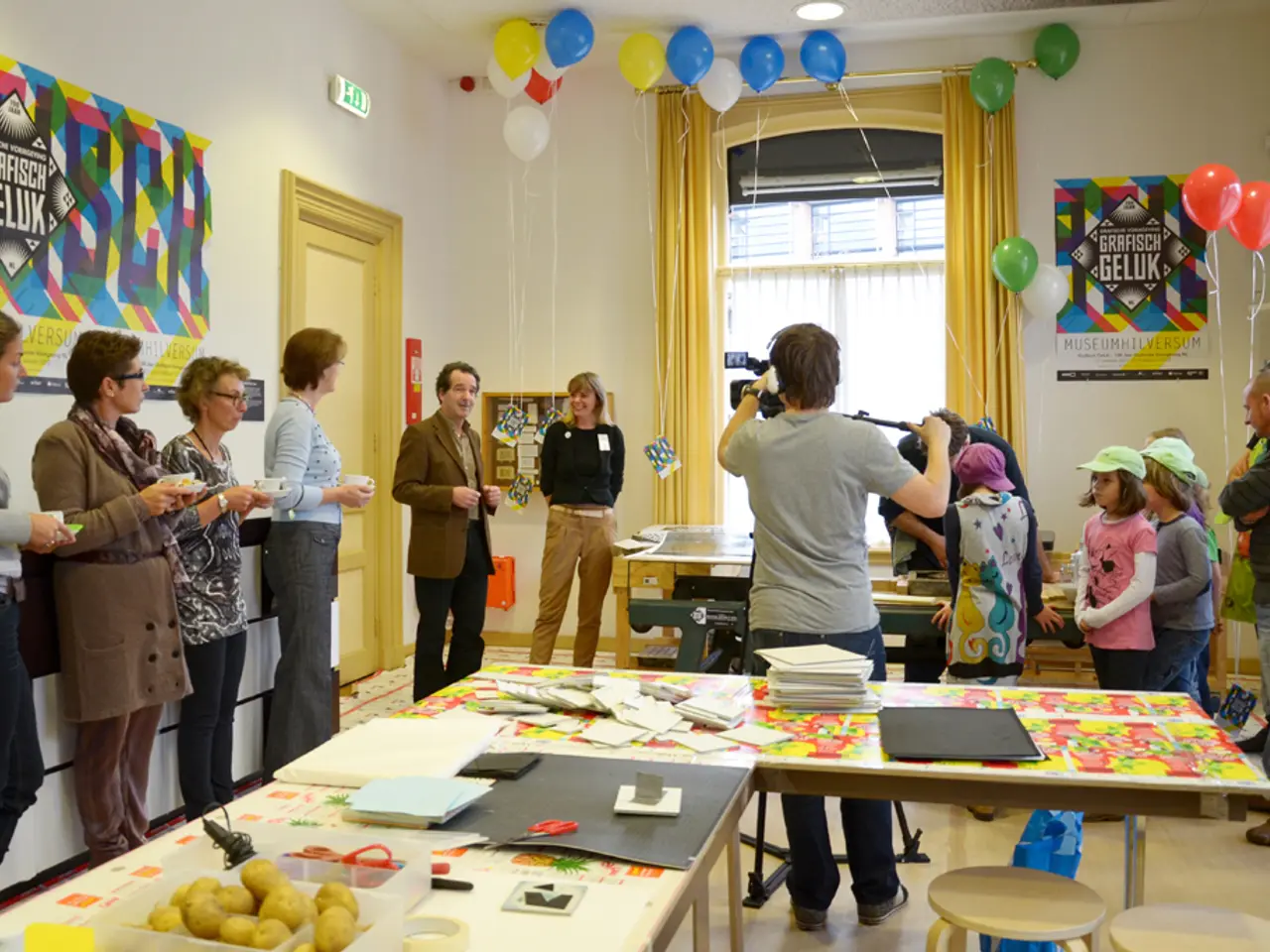Investigation by Culture, Media and Sport Committee on British Film and Prestigious Television Industries
The UK government is considering a series of policy changes aimed at bolstering the financial support for the country's screen sector, particularly in the areas of film and high-end television (HETV). The Creative Industries Policy and Evidence Centre (Creative PEC) has proposed a key recommendation to amend or clarify the definition of Research and Development (R&D) for tax relief purposes, with the aim of capturing creative activities that involve scientific or technological advances within the screen sector and wider creative industries.
This move is designed to address current limitations where creative industries struggle to fully benefit from R&D tax relief. By recognising interdisciplinary innovation in creative screen projects, the proposed changes would ensure that scientific or technological contributions embedded within creative processes receive appropriate fiscal support.
One of the specific policy options includes publishing revised HMRC guidance in 2025 to clarify that eligible interdisciplinary innovation involving creative activities (e.g., film and HETV projects seeking scientific or technological advances) can qualify for R&D tax relief. This would help align the tax relief with the sector's innovation nature.
Another focus is on supporting public service broadcasters to maintain financial stability and compete globally, which indirectly supports growth in film and HETV that rely on R&D tax relief provisions as part of overall funding measures.
While no immediate legislative change to the R&D definition is planned, the emphasis is on clarifying interpretation so that creative sector projects innovating at the intersection of arts and technology are recognised under R&D tax relief criteria.
The UK's screen sector, known for its significant role in the economy and its ability to attract foreign direct investment, is R&D intensive. However, it faces challenges such as under-representation of people from working class backgrounds, skills shortages, and exacerbation of diversity issues.
The Creative PEC's Good Work Review also recommends changes to improve the quality of work in the UK's screen sector, particularly at multiple points of the education and skills system. Enhancing investment in interventions that support career progression for people from working class backgrounds in the screen industries and agreeing on an industry-wide approach to measuring socio-economic background in the workforce are among the suggested measures.
Research from the British Film Institute (BFI) and Independent Cinema Office highlights the need for continued support for UK cinema venues and the film exhibition and screen heritage sectors, with some cinemas, multiplexes, and mixed arts venues still struggling post-pandemic.
In summary, the recommended policy option is to enhance the inclusiveness of the R&D tax relief criteria through clearer guidance recognising interdisciplinary innovation in creative screen projects, thereby strengthening financial support for the UK screen sector’s research and development efforts.
- The Creative Industries Policy and Evidence Centre (Creative PEC) has proposed a key recommendation to amend the definition of Research and Development (R&D) for tax relief purposes.
- By recognising interdisciplinary innovation in creative screen projects, the proposed changes would ensure that scientific or technological contributions embedded within creative processes receive appropriate fiscal support.
- One of the specific policy options includes publishing revised HMRC guidance in 2025 to clarify that eligible interdisciplinary innovation involving creative activities can qualify for R&D tax relief.
- The UK's screen sector is R&D intensive and plays a significant role in the economy, attracting foreign direct investment.
- However, the sector faces challenges such as under-representation of people from working class backgrounds, skills shortages, and exacerbation of diversity issues.
- Research from the British Film Institute (BFI) and Independent Cinema Office highlights the need for continued support for UK cinema venues and the film exhibition and screen heritage sectors, with some cinemas, multiplexes, and mixed arts venues still struggling post-pandemic.
- The Creative PEC's Good Work Review also recommends changes to improve the quality of work in the UK's screen sector, particularly at multiple points of the education and skills system.
- Enhancing investment in interventions that support career progression for people from working class backgrounds in the screen industries and agreeing on an industry-wide approach to measuring socio-economic background in the workforce are among the suggested measures.






